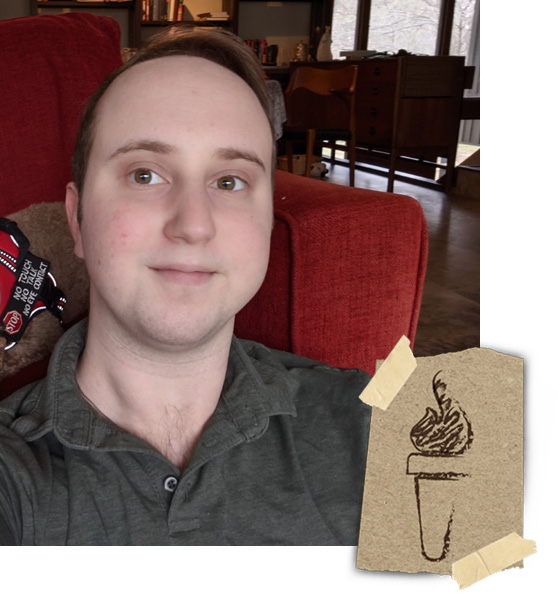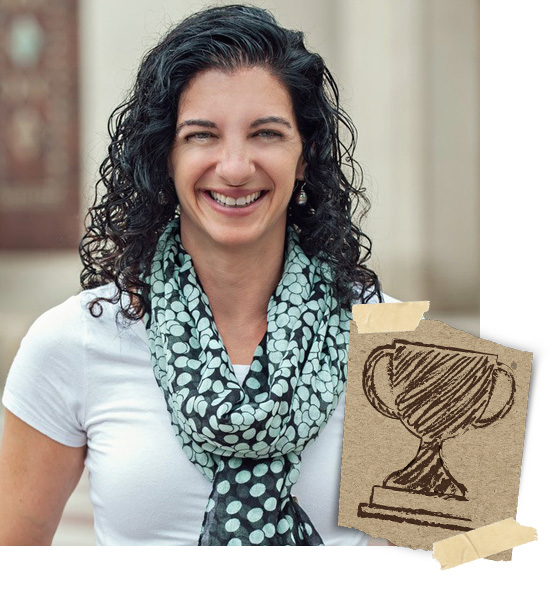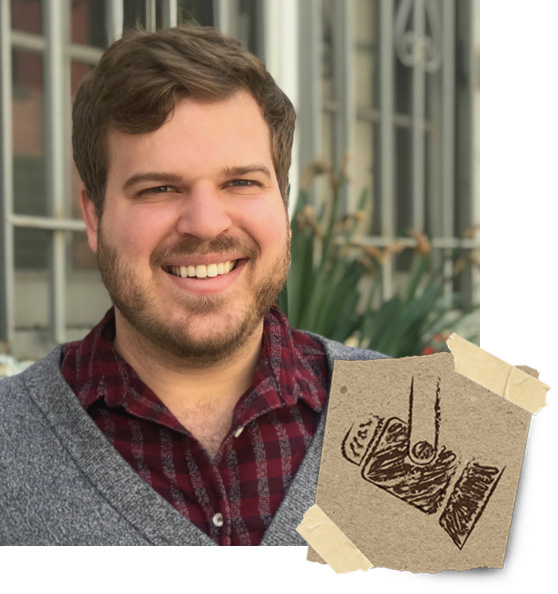Diversity Torch: Reid Ellefson-Frank
January 26, 2021 - Liz Schondelmayer
 When it comes to remembering the Holocaust, there is no student better equipped to tackle the topic than anthropology junior Reid Ellefson-Frank. An East Lansing native with a global mindset, Reid's academic interests focus on understanding the politics of collective memory, and how to memorialize tragic events such as genocides and wars.
When it comes to remembering the Holocaust, there is no student better equipped to tackle the topic than anthropology junior Reid Ellefson-Frank. An East Lansing native with a global mindset, Reid's academic interests focus on understanding the politics of collective memory, and how to memorialize tragic events such as genocides and wars.
Reid transferred to MSU and joined the MSU anthropology department. There, he took the class "Heritage and Tourism" with Dr. Stacey Camp, and wrote his final paper on the Auschwitz-Birkenau Memorial and Museum in Poland.
"In that class, we discussed how all museums are products of the political situation they were created in," explained Reid. "I wanted to see how a museum with such a tragic, violent past presented the camp's history."
The Auschwitz-Birkenau Memorial was built directly out of the Auschwitz concentration camp, meaning that visitors walk on the exact same ground on which over a million people were murdered throughout the camp's operation. One key aspect of the memorial that Reid points out in his research is the fact that to create a lush, green lawn onsite, the meadowland plants native to the area were first removed with chemical weed killers.
"There is irony in that, to make the Auschwitz memorial more aesthetically pleasing, the decision was made to spray undesirable beings with chemicals to kill them," Reid noted. "I'm not saying that decision is necessarily right or wrong, but it goes to show the amount of thought and detail that must be put into such memorials."
Reid is also extremely interested in studying the politics of memory, meaning the way that society as a whole remembers historical events. "While they say that 'history is written by the victors,' that's not always true," Reid explained. "Your value as a contemporary living through any historic event is immeasurable."
To emphasize his point, Reid pointed out how the art and writings of those who experienced the Holocaust first-hand still shape our understanding of the events that transpired. "Anne Frank wrote a diary. Elie Weisel wrote Night. Countless pieces of artwork were created. All of these things give us invaluable insight into what happened within the concentration camps."
After graduating, Reid plans to continue his career in academia and earn a PhD in Historical Archaeology. "I am extremely interested in understanding how we can memorialize terrible events in a way that promotes healing and progress rather than oppression and further violence."
Reid was also asked about the best ways each of us can honor both survivors of the Holocaust and those lost in the Holocaust. His answer can be seen below.
Read more:

Diversity Champion
Faculty/Staff
Dr. Kirsten Fermaglich
As a scholar of Holocaust memory in the United States, Dr. Fermaglich, a MSU History Professor, exemplifies efforts to remember the impact of the Holocaust on today’s world.

Diversity Spotlight
Alumni
Dr. Geoffrey Levin
Dr. Levin is an assistant professor of Middle Eastern Studies at Emory University and is a graduate of MSU’s Asian Studies and Peace and Justice Studies Programs. Dr. Levin conducts research on the relationship between American Jews and Israel following the 1948 war.

Diversity Matters
We strive to cultivate an inclusive and welcoming college environment that celebrates a diversity of people, ideas, and perspectives.

